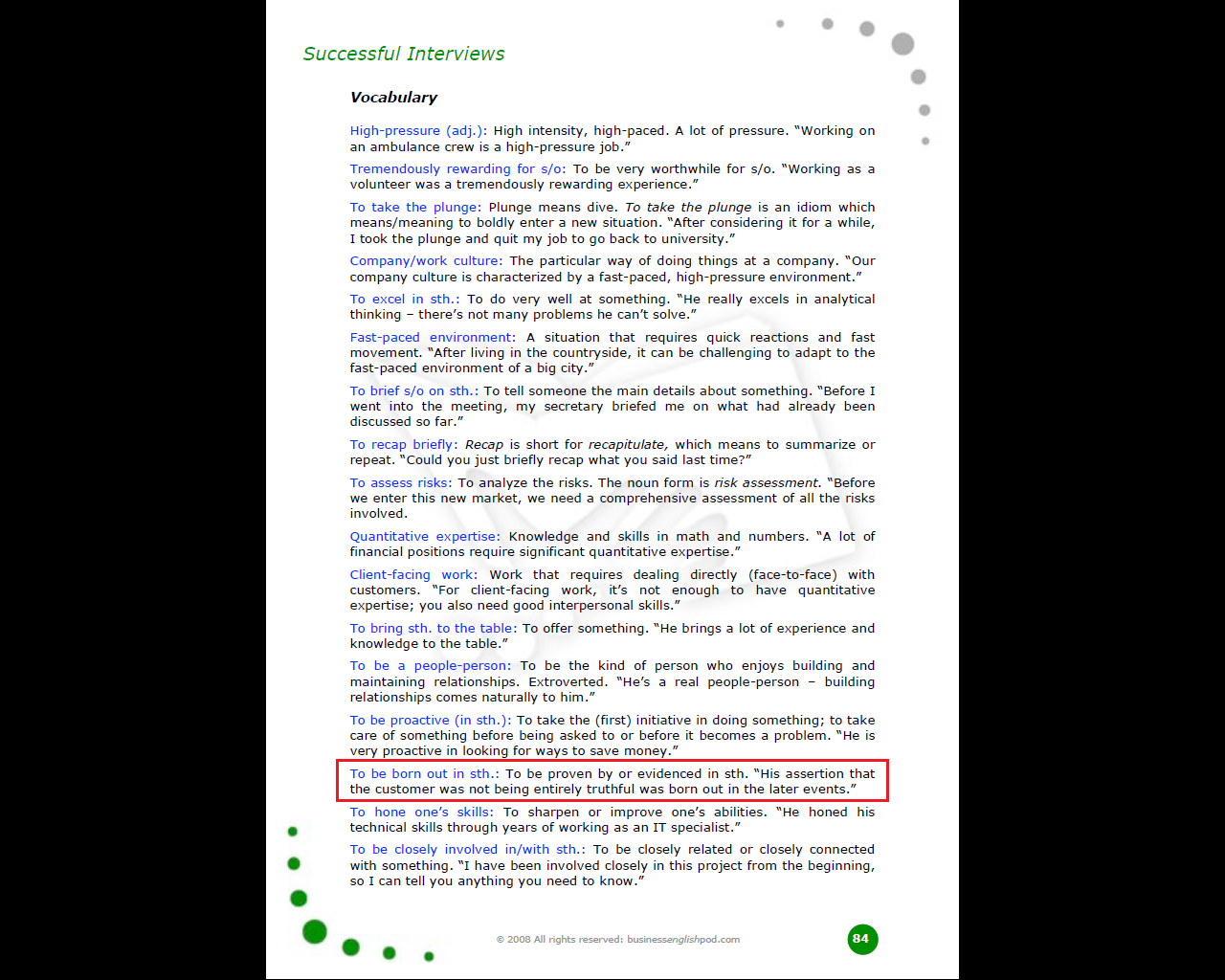To be born out in sth:
To be proven by or evidenced in sth.
"His assertion that the customer was not being entirely truthful was born out in the later events."
To bear somebody/something out
to show that someone is right or that something is true
"The other witnesses will bear me out."
"The other witnesses will bear out what I say."
They both look alike in meaning.
Is born a passive form of some plain infinitive?
What is the plain infinitive of born?
To bear out [plain infinitive]
To be bore out [passive]
To have borne out [perfect active]

